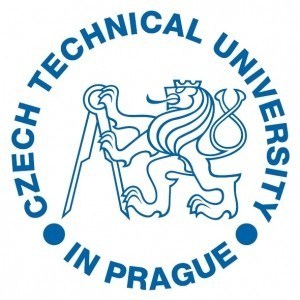Photos of university / #cvutpraha
Electrical Engineering, Power Engineering and Management at Czech Technical University in Prague offers a comprehensive education that prepares students for a successful career in the dynamic fields of electrical engineering and energy management. The programme combines fundamental theoretical knowledge with practical skills, enabling graduates to design, operate, and optimize electrical systems, power plants, and energy networks. Students will explore core disciplines such as electrical circuit theory, electromagnetism, power system analysis, control systems, renewable energy sources, and smart grid technologies. The curriculum emphasizes modern engineering approaches, sustainable energy solutions, and innovative management practices, ensuring that graduates are equipped to meet the environmental and technological challenges of the contemporary energy sector.
Throughout their studies, students engage in hands-on laboratory work, project-based learning, and collaboration with industry partners, which fosters a strong practical understanding and prepares them for real-world applications. The programme also focuses on project management, economic aspects of energy projects, and legal and environmental considerations, providing a holistic view of the industry. Graduates will gain the skills necessary for designing and managing electrical and power systems, implementing innovative energy solutions, and contributing to the development of sustainable and efficient energy infrastructures. The degree prepares students for careers in power generation, distribution, transmission, energy consulting, and technological innovation. It also offers a solid foundation for research and development activities or postgraduate studies in related fields. With a distinguished faculty and state-of-the-art facilities, the programme aims to produce experts who can shape the future of electrical power engineering and management both in the Czech Republic and internationally.
The Master's degree program in Electrical Engineering, Power Engineering and Management at the Czech Technical University in Prague offers a comprehensive education designed to prepare students for the evolving demands of the energy sector and electrical industry. The program combines advanced technical knowledge with managerial skills, enabling graduates to effectively lead and innovate within complex technological environments. Throughout the coursework, students gain a solid understanding of electrical power systems, their design, operation, and control, as well as the integration of renewable energy sources and smart grid technologies. Emphasis is placed on topics such as power system stability, reliability, and protection, ensuring graduates are equipped to handle the technical challenges faced by modern electrical networks.
In addition to core technical subjects, the program includes modules focused on management and economics, providing insight into project planning, financial analysis, and strategic decision-making in the context of the power industry. Students have opportunities to develop practical skills through laboratory work, simulation exercises, and participation in research projects. The program also encourages innovation and entrepreneurship, supporting students in identifying new solutions for sustainable energy production and efficient energy management.
Furthermore, students benefit from the university's strong links to industry partners, enabling internships and collaborations that enhance real-world experience. International components, such as exchange programs and courses taught in English, prepare students to operate in global markets and multicultural teams. Graduates of the program are well-prepared for careers in power generation companies, electrical engineering firms, energy management consultancies, and research institutions. They possess the technical expertise, managerial acumen, and ethical perspective necessary to contribute to the development of sustainable and efficient energy systems, ensuring the reliable supply of electricity in a rapidly changing technological landscape.
The Electrical Engineering, Power Engineering and Management programme at the Czech Technical University in Prague requires applicants to hold a completed upper-secondary education comparable to the Czech Maturita. Prospective students must submit proof of their secondary education achievement and demonstrate sufficient knowledge of the Czech or English language, depending on the language of instruction. Prior technical background or knowledge in mathematics, physics, and basic electrical engineering concepts is highly advantageous.
Applicants are required to complete an application form through the university’s online application system by the specified deadline and pay the registration fee. Supporting documents, such as certified copies of diplomas, transcripts, and proof of language proficiency (e.g., TOEFL, IELTS, or Czech language certificates), must be submitted as part of the application package. International students might need to undergo a recognition procedure of their foreign education credentials, according to Czech legislation.
The admission process may include a written entrance test or interview, focusing on knowledge of mathematics, physics, and basic electrical engineering principles. Selection criteria prioritize academic performance, motivation, and relevant experience. The university may also consider the applicant’s extracurricular activities and references.
Once admitted, students are expected to participate in orientation sessions and meet all the academic prerequisites established by the Faculty of Electrical Engineering. The programme curriculum adheres to the European Credit Transfer and Accumulation System (ECTS), with a standard workload of 60 credits per academic year. The total duration of the master’s programme is typically 2 years (4 semesters). Students must earn the required credits and complete their thesis project under faculty supervision to graduate.
The university emphasizes practical training, internships, and collaboration with industry partners, which are integrated into the curriculum. Students are encouraged to participate in student exchange programmes, internships abroad, and research projects. To graduate, students must fulfill all coursework, examinations, and project requirements, and pass a final state exam in their field of study.
The Financing of the Electrical Engineering, Power Engineering and Management program at the Czech Technical University in Prague is structured to support students through various financial options, scholarships, and funding opportunities. The program itself is designed to provide high-quality education in the fields of electrical engineering, power systems, and management, emphasizing both theoretical foundations and practical applications. Tuition fees are set annually and are subject to adjustments, but generally, they are in line with other technical programs at the university. International students may be required to pay different tuition rates compared to domestic students, depending on their nationality and the specific regulations in place.
The Czech Technical University offers a range of scholarships aimed at supporting talented students, including merit-based scholarships for outstanding academic performance and need-based scholarships for students demonstrating financial hardship. These scholarships can significantly ease the financial burden of studying and are awarded based on academic results, extracurricular activities, and financial circumstances. Furthermore, the university provides accommodation grants and partial subsidies for students who choose to study in Prague from abroad, helping to reduce living costs.
Students are also encouraged to seek external funding opportunities, including Erasmus+ mobility grants, which facilitate student exchanges within European universities. These grants can cover part of the tuition fees, travel expenses, and living costs during study exchanges, thereby providing additional financial support. Some students may also apply for governmental or private loans, depending on their home country’s agreements with the Czech Republic or international financial institutions.
Additional financial aid options include student jobs and internships organized through the university’s career center, which can provide supplementary income while gaining practical experience. The university’s cooperation with industry and government agencies often opens up opportunities for sponsored projects, scholarships, and research assistant positions, further enhancing students’ financial and professional prospects.
Overall, the financing strategies for this program aim to make higher education accessible and manageable for students from diverse backgrounds by combining institutional support, external grants, and personal funding sources. Prospective students are advised to consult the university’s official financial aid office and the program’s webpage for the most current and detailed information regarding tuition, scholarships, and funding opportunities to help plan their studies effectively.
The Master’s degree programme in Electrical Engineering, Power Engineering and Management at the Czech Technical University in Prague is designed to provide students with comprehensive knowledge and skills in the fields of electrical systems, power engineering, and technical management. The programme aims to prepare graduates for careers in the dynamic sectors of energy production, distribution, and management, as well as in the development and maintenance of electrical infrastructure. Through a thorough curriculum that combines theoretical fundamentals with practical applications, students gain expertise in electrical circuit design, power system operation, renewable energy sources, energy efficiency, and project management. The instruction is delivered by experienced faculty members, many of whom are active researchers contributing to advances in electrical engineering and sustainable energy solutions. Students have access to modern laboratories equipped with advanced measurement and testing facilities, enabling hands-on training that complements classroom learning. The programme encourages collaboration with industry partners and offers internships to provide real-world experience, helping students to develop critical problem-solving skills and industry-specific competencies. Graduates of this programme often pursue careers in engineering companies, utility providers, government agencies, consulting firms, or engage in research and development activities. The programme is aligned with international standards, ensuring graduates are competitive in the global job market. Additionally, students have opportunities to participate in international exchanges and joint projects, fostering multicultural teamwork and broadening their professional perspectives. The curriculum is structured to include core electrical engineering courses, specialized modules in power system management, as well as courses in management, economics, and project planning, ensuring a well-rounded education. Upon completion, students receive a Master’s degree in Electrical Engineering, Power Engineering and Management, which qualifies them to hold senior roles in technical and managerial positions within the energy sector and related industries. The programme’s interdisciplinary approach equips students with the tools necessary for innovative contributions to the advancement of electrical and power engineering disciplines worldwide.










